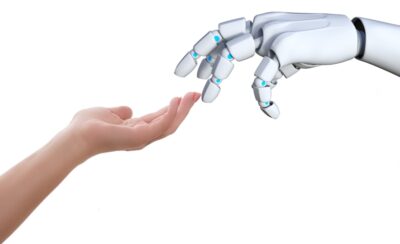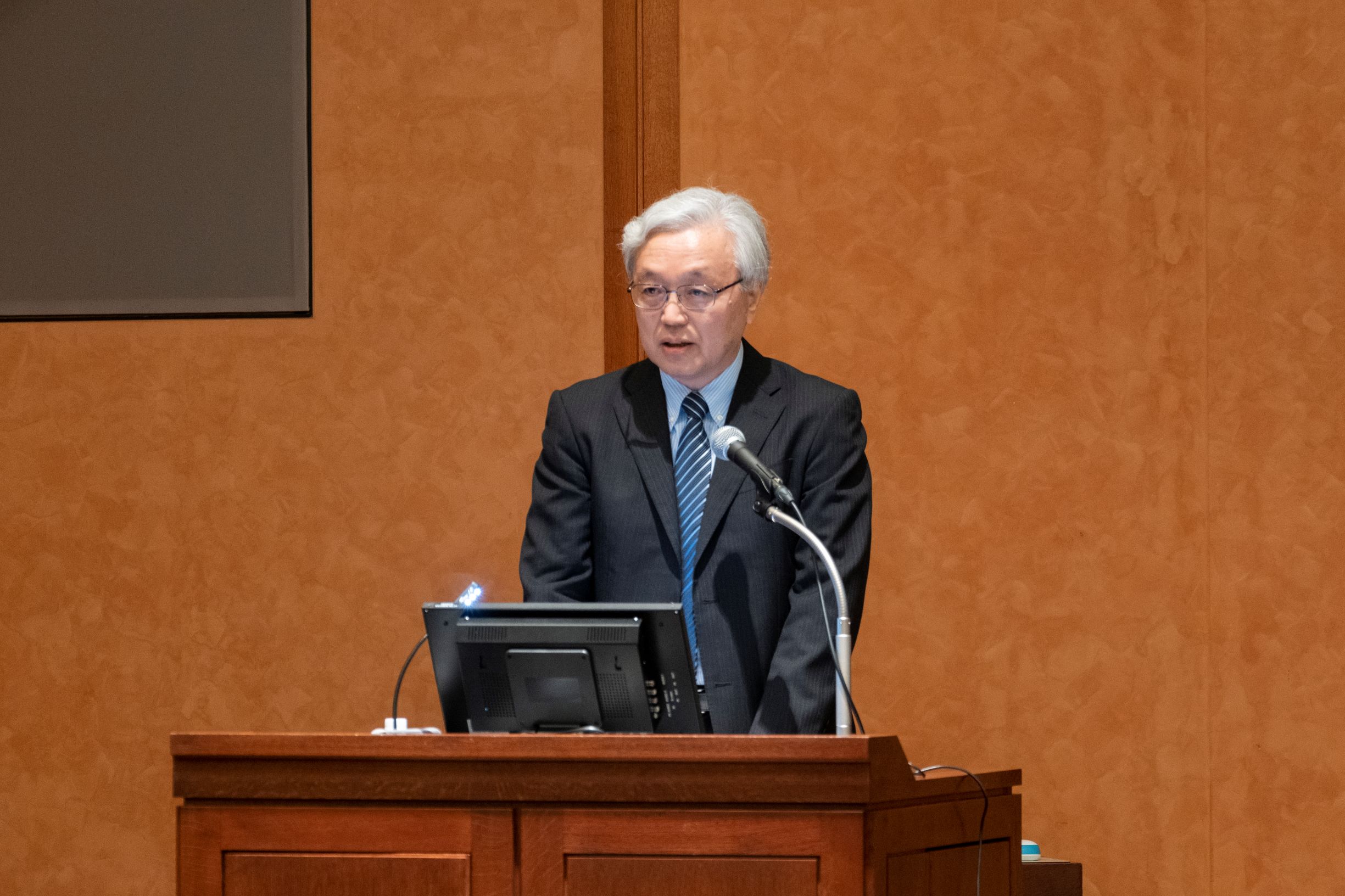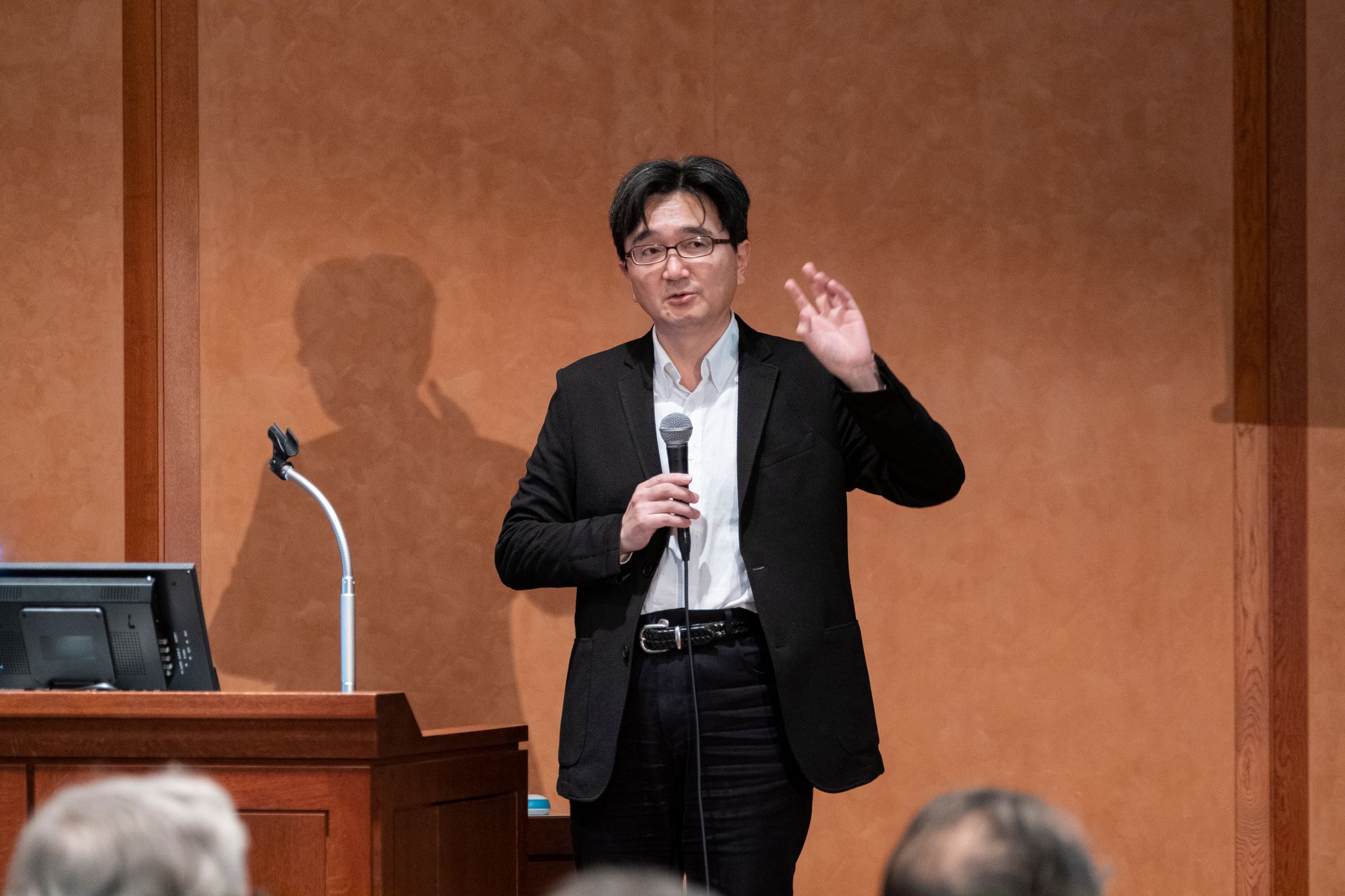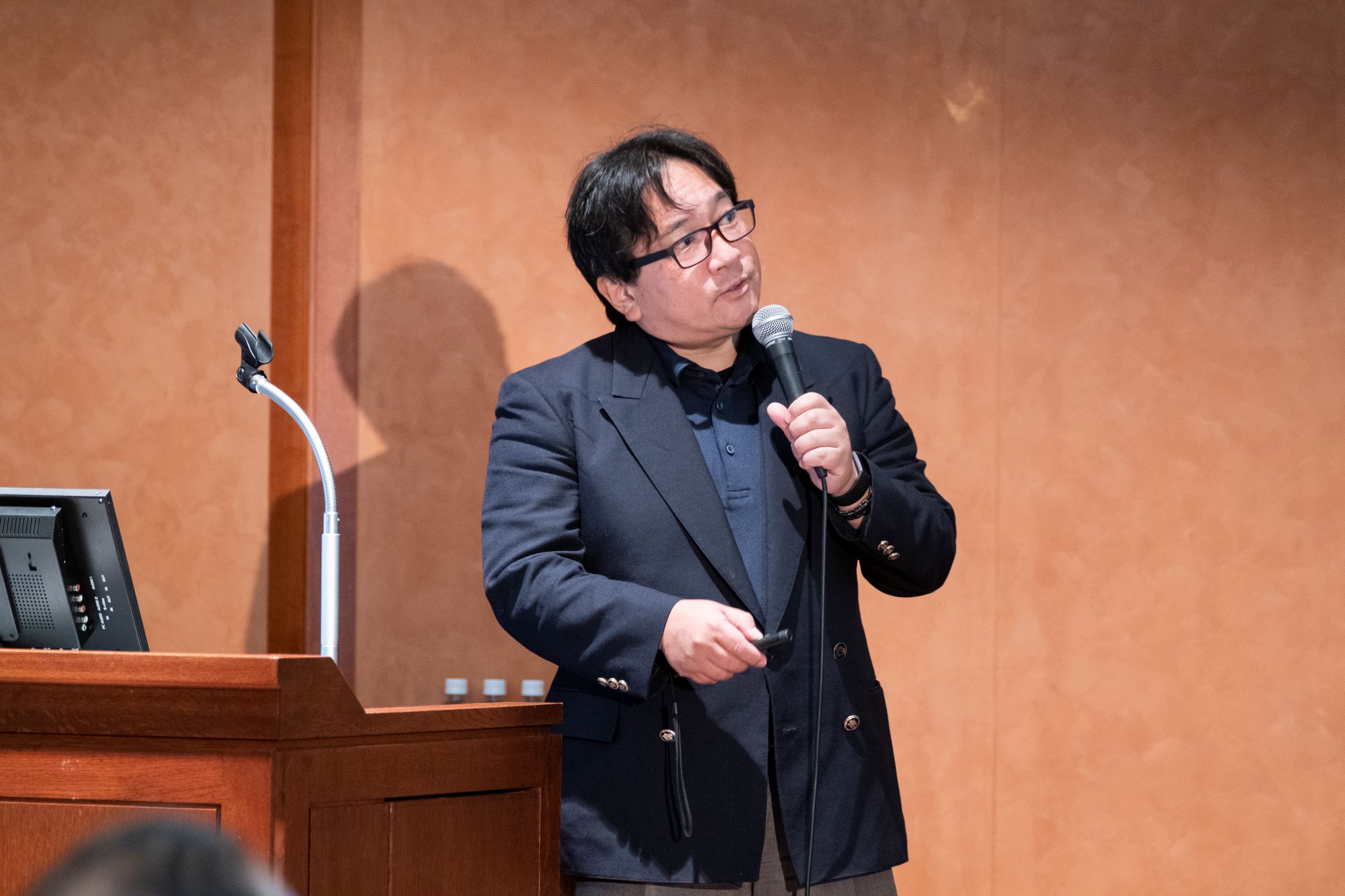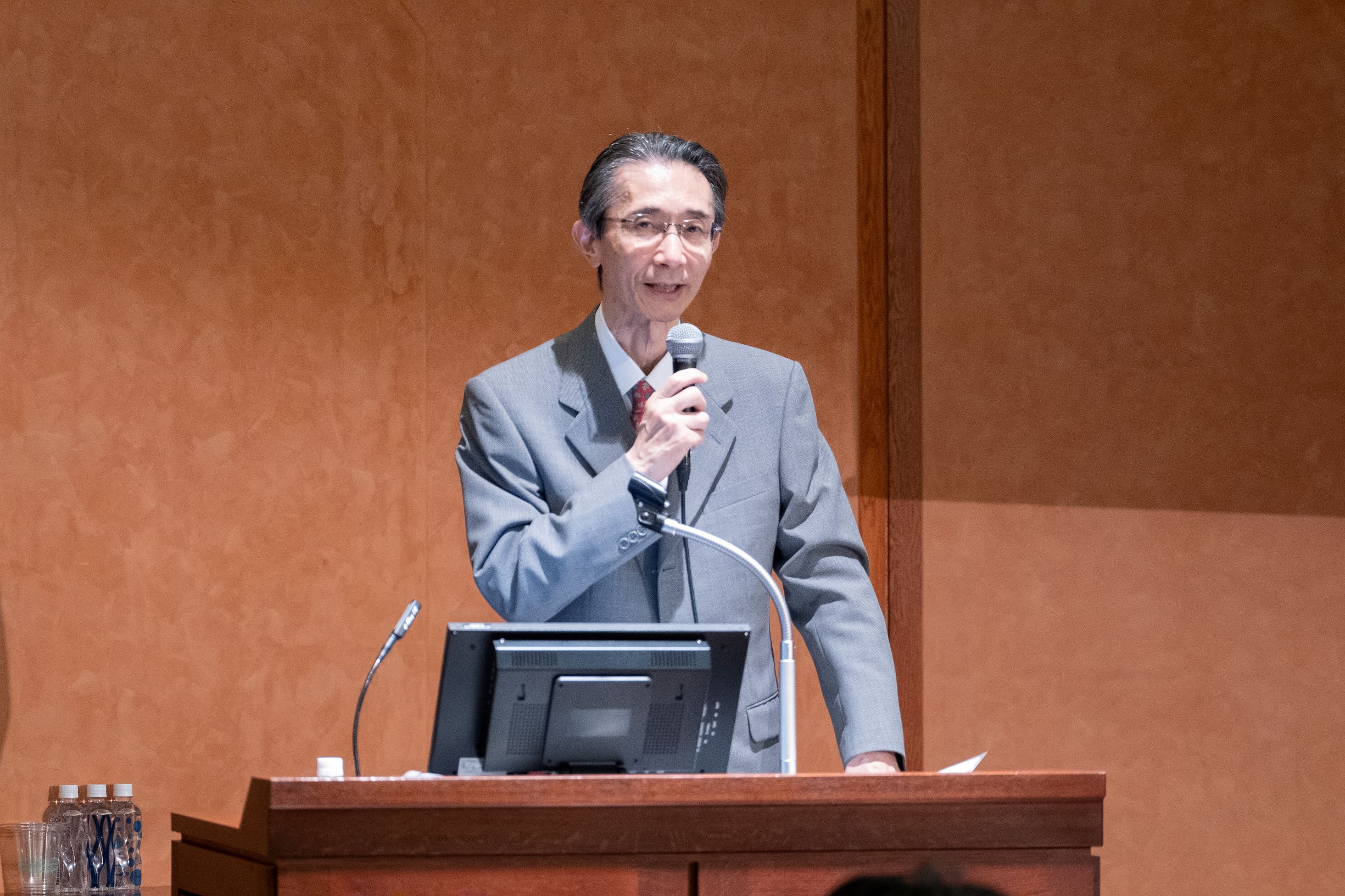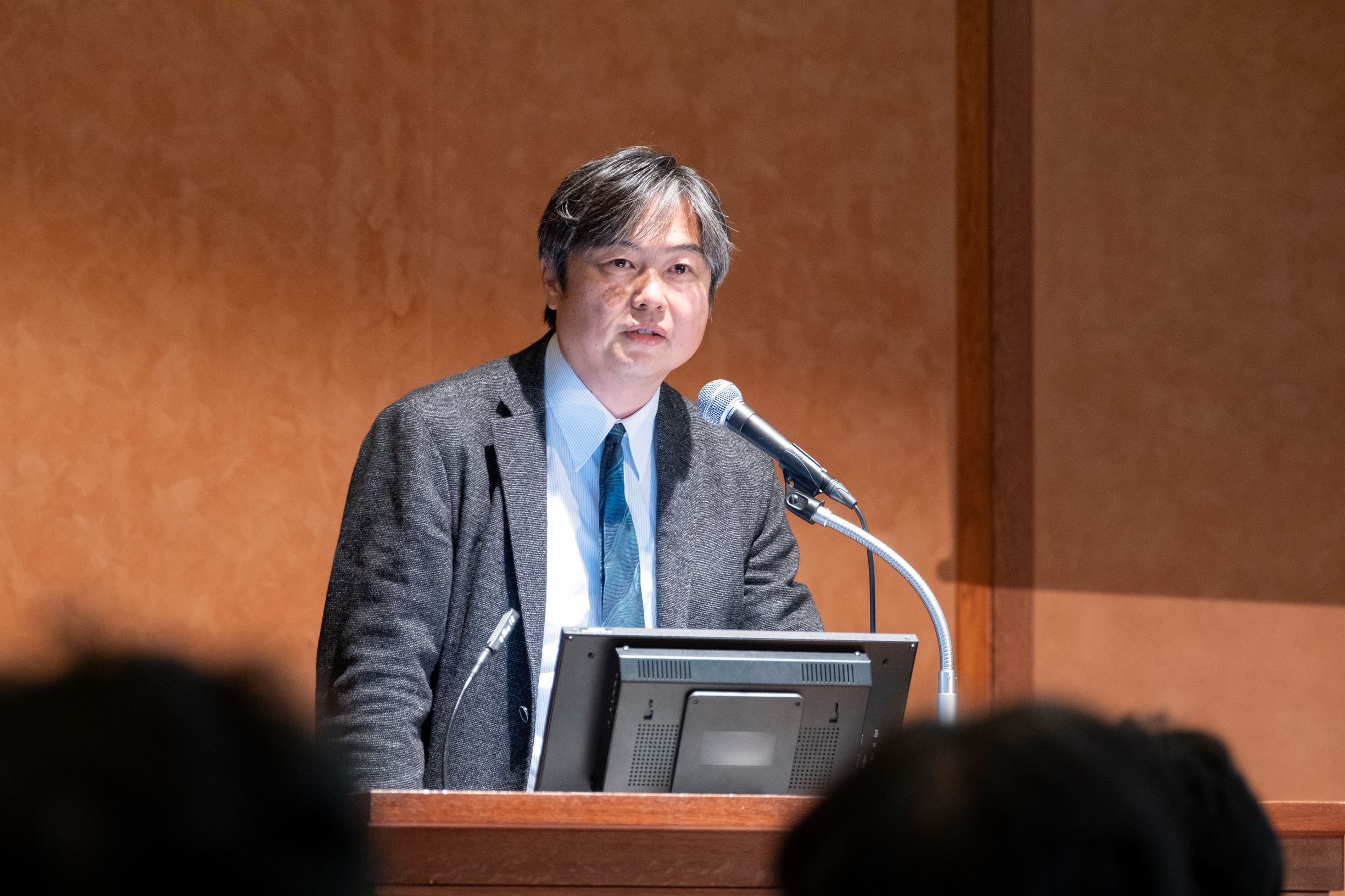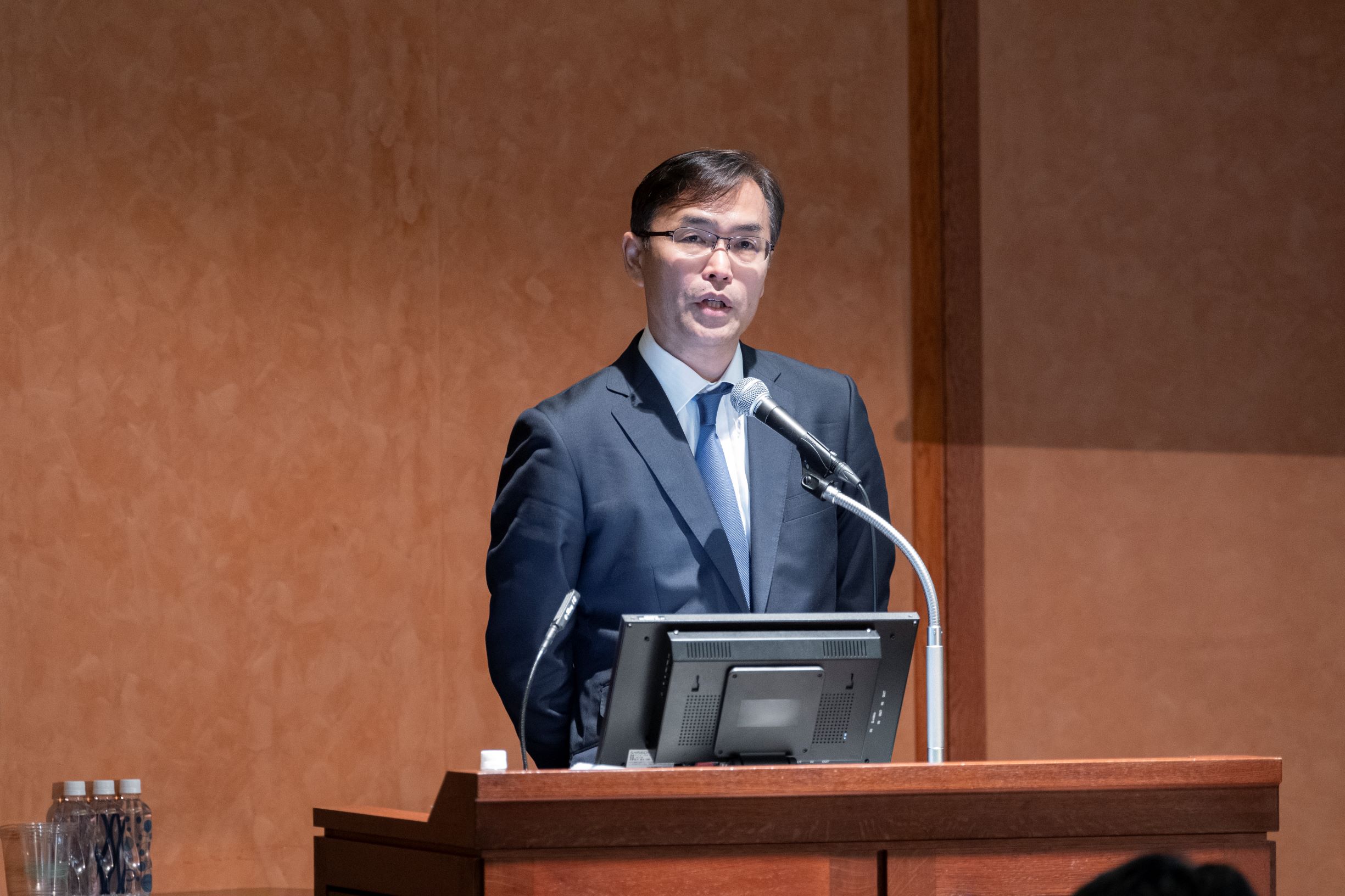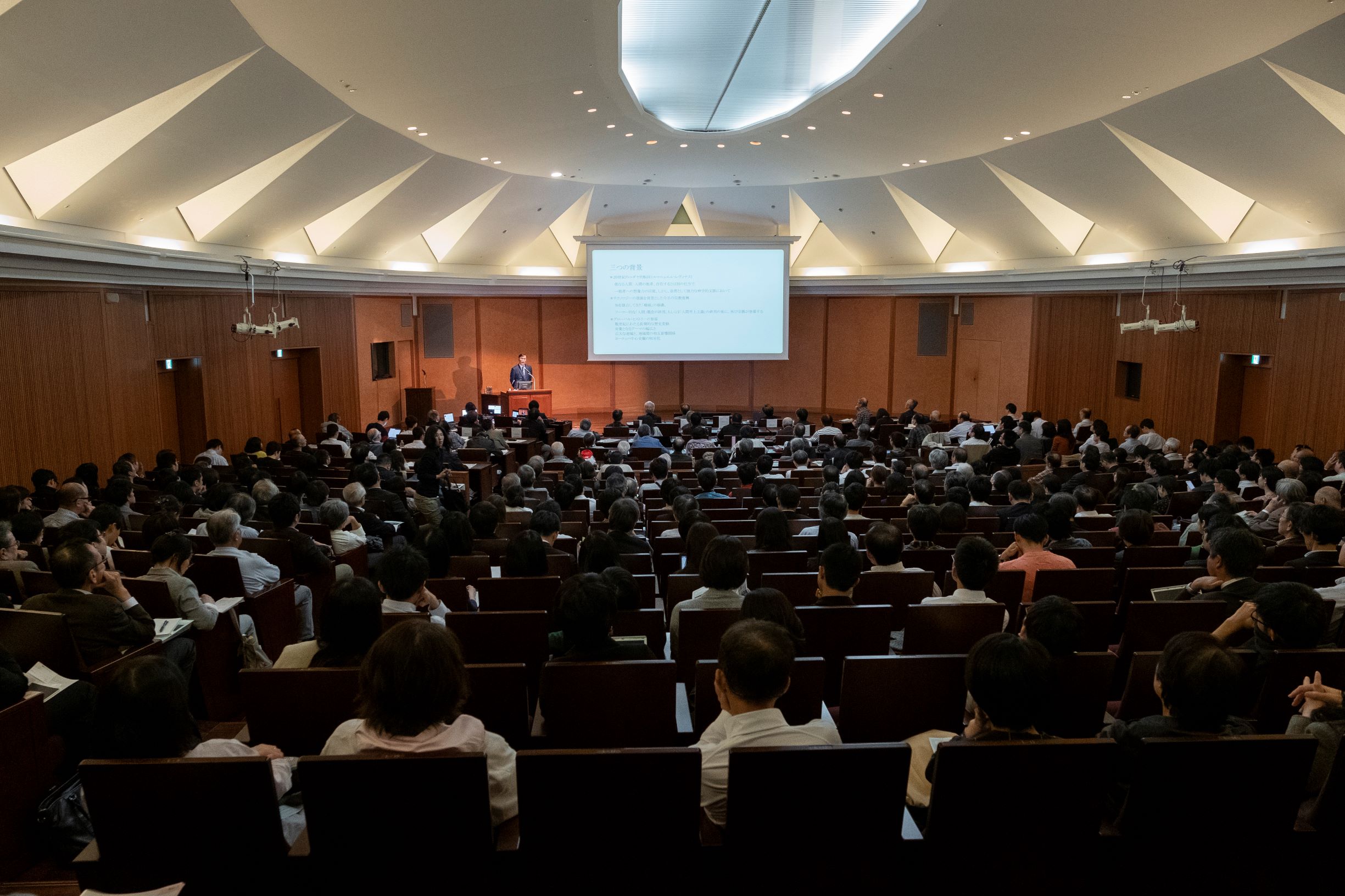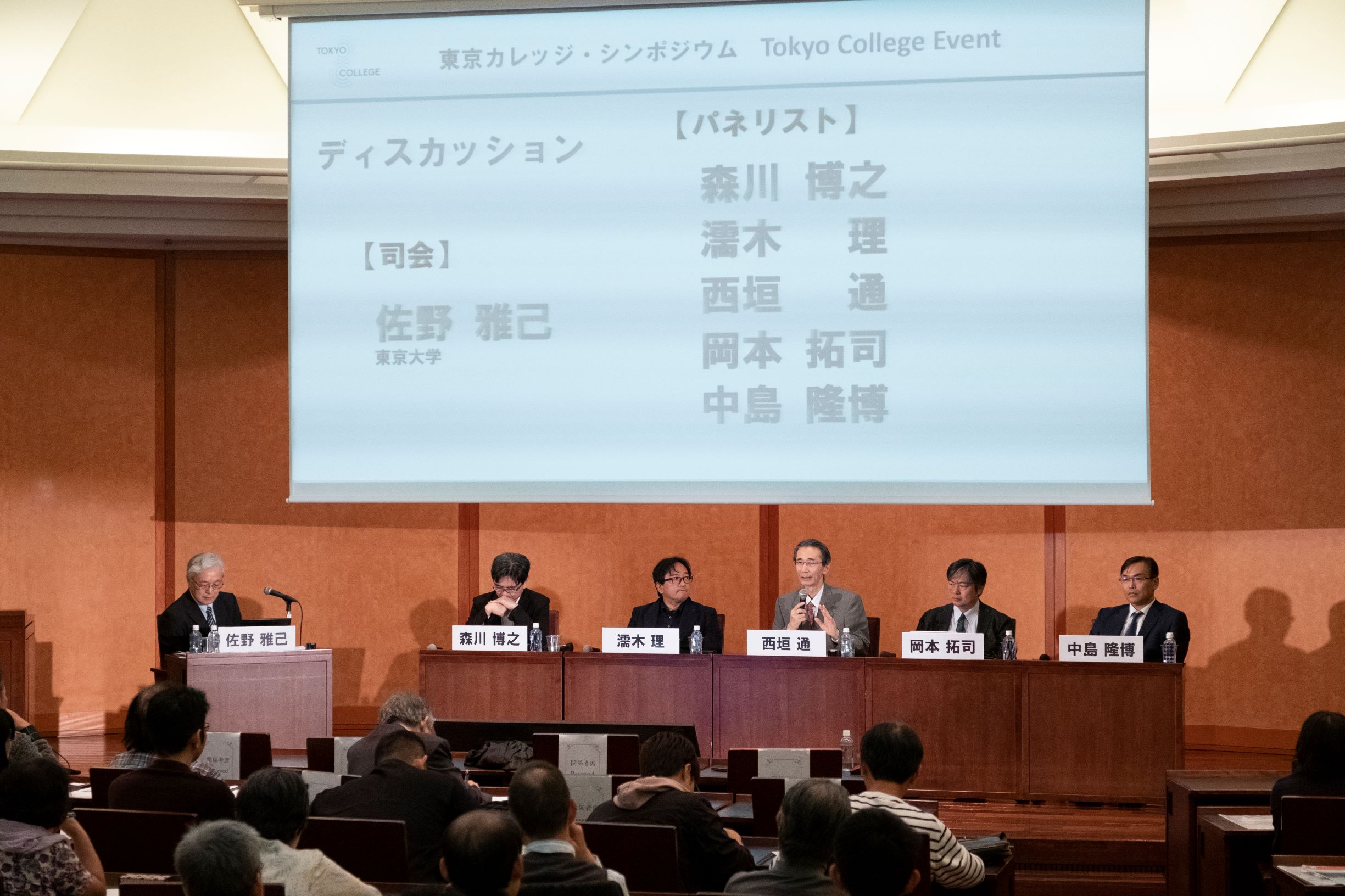Tokyo College Symposium “What is a human being? Thinking about the digital revolution, genomic revolution and human society“
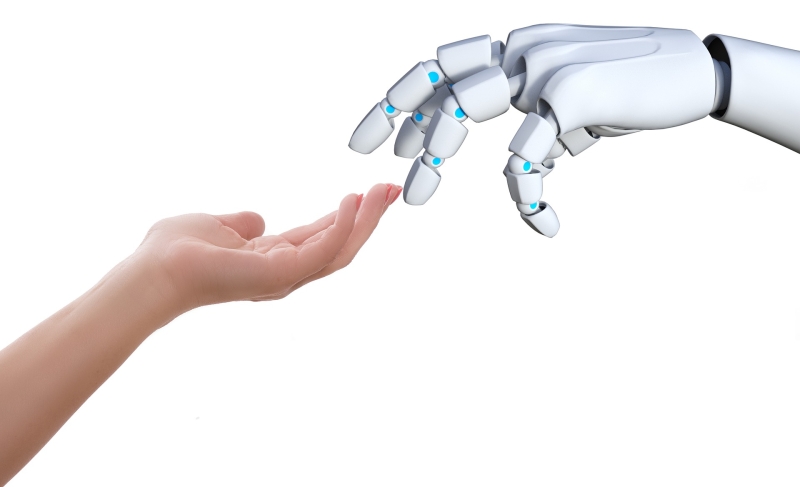
Tokyo College Symposium “What is a human being? Thinking about the digital revolution, genomic revolution and human society”
Professor Masaki Sano (Deputy Director, Tokyo College) moderated the first part of the session, which featured presentations from Professor Hiroyuki Morikawa (School of Engineering), Professor Osamu Nureki (School of Science), Professor Toru Nishigaki (Professor Emeritus, the University of Tokyo), Professor Takuji Okamoto (Graduate School of Arts and Sciences), and Professor Takahiro Nakajima (Institute for Advanced Studies on Asia).
First, Professor Morikawa gave a presentation titled “The digital transformation of industry, the economy, society, and localities,” in which he gave the examples of sports, comedy theaters, and waste paper collection systems to explain the new added value obtained from digital data. He stated that “human capacities” are important in the digital revolution, and that people need to share a sense of the benefits of digital technologies.
In a presentation titled “Genome editing: the situation now, and the future,” Professor Nureki then explained genome editing using CRISPR-Cas9, and explained the possibility of applications such as accumulating beta carotene in rice, and cultivating tomatoes with a longer shelf-life or onions that do not make you cry when cut. Next, Professor Nishigaki gave a presentation on “The future of AI and human freedom,” in which he proposed the desirability of taking account of discussions overseas known as the singularity hypotheses and the Homo deus hypothesis to understand AI systems as pseudo-autonomous agents, and that we should go on to use AI as an IA (Intelligence Amplifier), which incorporates the meaning of being something put to use by human beings.
Professor Okamoto’s presentation was titled “Society facing new science and technology: from the experience of modern Japan,” and used the principal examples of electricity theft and the atomic bomb to consider, the effects of new science and technology on society and the state, and how society and the state have responded, based questions concerning the national polity and the people. He stressed that core values can be abandoned, altered, or transformed, and that interpretations can be changed in the context of post-transformation perspectives. Finally, Professor Nakajima gave a presentation titled “Re-defining human beings today,” in which he examined the concept of human beings from a philosophical perspective, referring to the “Jewish Turn” of the 20th century, technological progress, and the emergence of global history as three factors behind changes in the concept of the human being. Introducing Yuval Noah Harari’s Sapiens: A Brief History of Humankind (2011), and based on the view that the nature of the future will change depending on what we want in the future, he argued that the time has come when we must think of “spirituality” as distinct from religion.
The second part of the event was a panel discussion and Q&A session, also moderated by Professor Sano. There were questions from the floor on topics including issues of privacy associated with the use of data, and the safety of genome-edited foods. The session developed into an extremely significant discussion for the consideration of humanity’s future, with diverse views received from speakers in each field on themes such as the question of whether AI systems used for autonomous driving and the like can be considered “liable”, differences in the consciousness of the digital and genomic revolutions in Japan and overseas, and how to treat human “emotion.”
| Date(s) | Thursday, 31 October 2019, 5:00-8:00 pm (Doors open: 4:30 pm) |
|---|---|
| Venue |
Ito Hall, Ito International Research Cener, the University of Tokyo (Hongo Campus) |
| Registration | Pre-registration required (390 seats - First come, first served) |
| Language | Japanese langauge only |
| Organized by | Tokyo College, The University of Tokyo |
| Contact | tcevent@graffiti97.co.jp |


